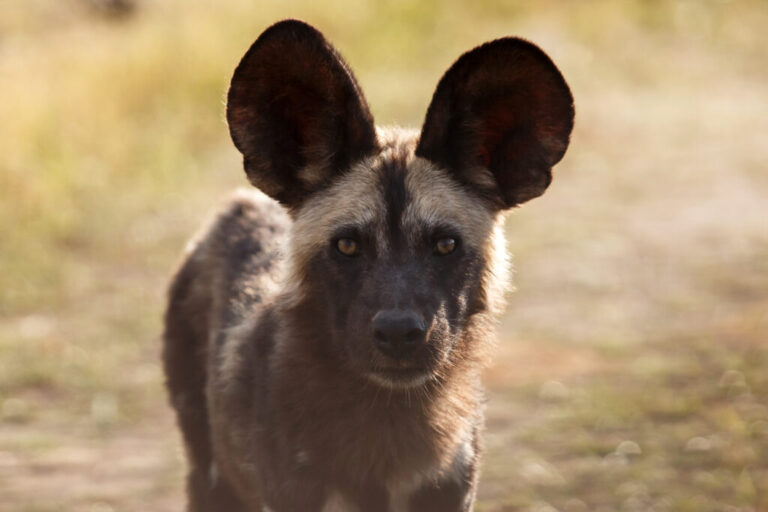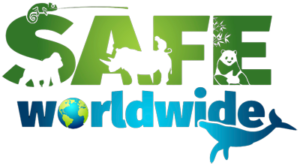Species in Peril:
Painted Wolves

The greatest hunter of them all
What are painted dogs?`
African Painted dogs are their own genus. And they have many names: African Painted Wolves, African hunting dogs, African Wild Dogs, Lycaon Pictus and Cape Hunting dogs.
Regardless of what name is preferred, the species is in its own genus. What make painted dogs so unique is their coat marking and their distinctive big ears.
Painted dogs hunt in packs. Before going on a hunt, they create an excitement by vocalizing, playing, jumping and circling and touching one another until the alpha pair signal to head out.
They hunt at twilight, when their prey are most active and their coloring allows them to blend into their surroundings.
Are they related to domestic dogs?
Painted Dogs are one of the most social animals in the animal kingdom. They are not related top domestic dogs Typically, the alpha male and female are the only ones that will have pups. But the rest of the pack will help top care and feed the young, until they are ready to join in the hunt.
The pups are weaned at 5 weeks and only join the full-on hunt at 1 year of age. Siblings from one pack will most likely leave to find or form another pack, eventually starting their own family.
Their numbers are dwindling
Painted dog numbers have suffered terribly in the last 60 years. Their numbers have gone from over a million to less than 6,500 and without conservation efforts, this species could be threatened by extinction.
One of their biggest threats are habitat loss because painted dogs need large territories to roam and find prey. The other main threat is human encroachment, where the painted dogs are going into community lands and often get killed on roads or poisoned by local farmers. Also, even though painted dogs are in their own genus, they can get diseases like rabies and distemper from unvaccinated domestic dogs. When a painted dog gets rabies, it will kill the entire pack.
Conservation groups in Africa are working to come up with solutions to help save this species. But their numbers continue to dwindle.
A Few More Facts About Painted Dogs
- Contrary to popular perception, Painted Dogs are not related to hyenas.
- The coat of a painted dog is like a unique fingerprint and is different on every painted dog.
- Painted dogs can have litters of 2 to as many as 20 pups, with twice as many males as females being born.
- Painted dogs only have 4 toes and have 40 teeth. Domestic dogs have 5 toes and 42 teeth.
- The entire painted dog pack care the the pups.
- Sneezing often signals the start of a hunt
- The pack may split up to give them the greatest chance to succeed with a hunt.
- Once they succeed to take down a prey, they will signal to one another and come back together to share the catch.
- Lions and hyenas are their biggest threat
Video: Painted dog pups in Zimbabwe
The cheetah is in danger of extinction through loss of habitat due to humans killing them for their beautiful fur coat.
We owe it to the fastest land animals on the planet to protect their environment so that they will always have a place on this planet to live free from human interference and thrive in their natural habitats.
Species Name
Lycaon Pictus
Estimated Population
6,500 globally
Conservation Status
Critically endangered
Range
Parts of sub-Saharan Africa
Reasons for Population Decline
Habitat destruction
Human encroachment
Diseases like rabies contracted from domestic dogs


